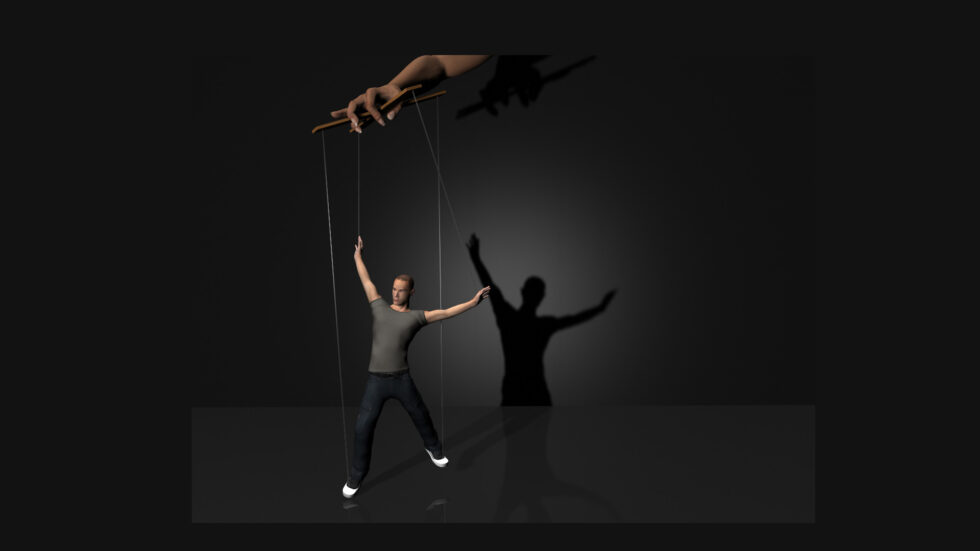Do you believe your wife tries to control you? Do you try to control her? This whole idea of one partner “controlling” the other is, quite frankly, a cop out. It is an abdication of your personal responsibility for what your relationship looks like.
But the idea of blaming your spouse for choices you make is irresistible, isn’t it? After all, if it’s your spouse’s fault, then you’re off the hook, right? NOPE.
If this is the hill you want to die on, just know that your marriage is going to die too.
Yes, you want things a certain way. Yes, your wife wants things her way. And so you both engage in a tug of war that creates tension, strife, and resentment. Usually, the partner that is not winning resorts to playing the “control” card. The outcome—more tension, strife and resentment.
No one can control you unless they physically overpower you. Even then, you may still have some options. So, I’m always a bit bemused when I hear that one spouse is trying to make the other spouse do something.
article continues below
My client Craig once told me his wife, “made him live in Baltimore for twelve years.” I remember thinking, “what, she duct taped you to a chair with a gun to your head?” No, he was uncomfortable tackling their living arrangement. Much easier to blame her instead of taking responsibility for having a hard conversation about what he wanted.
This same kind of thinking leads to relinquishing responsibility for your feelings and behavior. Your partner says or does something that you don’t like. But what happens next is completely up to you.
Your partner doesn’t “make you mad”. You choose to be angry. And what you do in that state is on you as well. If you yell, call them names, throw things, give them the silent treatment—that’s all on you.
And the consequences are yours, too. Whether you like it or not. Whether you own it or not.
Far too many couples fall into this pattern of blame and self-deception. Are you one of them?
The good news about taking charge of yourself is that it allows you to take control. Not of your partner but of your marriage and your life.
When you drop your end of the rope. When you stop blaming your partner for trying to control you. When you step into responsibility for what you’re creating. That’s when things will shift.
Because when you point a finger at your spouse, there are still three pointing back at you. Deal with those first and you’ll have a real shot at a great marriage.
If you’re ready to take control of what your relationship is like, let’s talk.
around the web this week:
How to Think About Sex and Intimacy in Your Marriage
As humans, we are not meant to live in isolation. Loneliness has real implications for your mental, emotional, and, yes, physical health. Physical touch of all kinds is essential for good health and well-being. So, it’s no surprise that people in relationships where physical interaction is limited feel disconnected and, often, pain. But what if there was a path to better connection and more physical interaction with your partner? Never fear, Licensed Marriage and Family Therapist Alysha Jeney is here to provide guidance on how to do this.
The #1 way you’re giving up control in your marriage (and what to do about it).

Join our FREE Facebook Group for men only,


